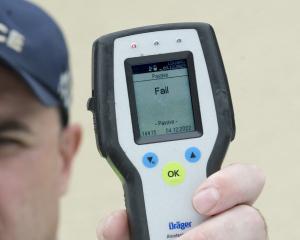Tapestry Clubhouse programme facilitator Sharon Hardwick said the Southern District Health Board funded the St Kilda service that provided vocational and social rehabilitation.
Although the general focus of activities - such as clerical work, public relations, cleaning, shopping, maintenance and administrative tasks - was vocational, the clubhouse was not a work training centre.
Work was a vehicle, not a goal, she said.
Tapestry Clubhouse member Ken Grieve (54), of Dunedin, has been a clubhouse member for the past 10 years. He said he was diagnosed with depression and had been unemployed for five years before gaining transitional employment, through the clubhouse, at Otago Polytechnic.
''It's nice to be able to say I work. It boosts your self-esteem a great deal. You feel physically and mentally better and you are interacting with good people. It gets you involved and energised.''
The clubhouse staff never ordered members to work - jobs were offered.
''And every time somebody puts their hand up. It makes them feel more included. In the past, psychiatric places ordered people to do things.
''The clubhouse is more about getting out of your head and doing it off your own back.''
The staff were peers and members participated in the daily decision-making of clubhouse life, Mr Grieve said.
The clubhouse way was a stark contrast to the past, when people with mental illness were told what to do and unco-operative people were ''locked up'', he said.
''That kind of old rubbish has gone and that's what makes Tapestry so good; it's all volunteer.''
Mervyn McFadyen (58), of Dunedin, said he was diagnosed with bipolar disorder in his early 20s and had been a clubhouse member for the past 10 years.
He said anyone could get a mental health diagnosis ''out of the blue'' and the clubhouse provided an encouraging environment.
He had worked at the polytechnic on the transitional employment programme for 11 months, which had been ''empowering''.
''It has enriched my confidence and self-belief.''
He urged anyone with a mental health illness to ''step out'' from their ''comfort zone'' and seek support from the clubhouse.
''We all need to be nurtured at times.''
Mental Health Awareness Week started on Monday.











